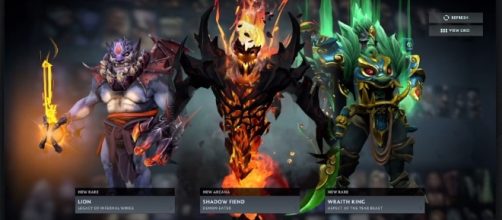A handful of changes are soon to be seen in “Dota 2” with the upcoming Matchmaking Update. Valve is hell-bent to end “smurfing” once and for all, which means playing under a different identity to get away from the old matchmaking rating. Simply put, players are now required to register a phone number to crack down on Doters toying with multiple accounts.
Beginning May 4, players that don’t have a valid phone number linked to their Steam accounts will not be eligible for ranked play. The announcement at the “Dota 2” blog also says: “online services that provide phone numbers are not allowed.” It’s not clear how Valve plans to confirm international numbers, but North American accounts shouldn’t have a problem, considering the North American Numbering Plan Administration (NANPA) will track down ambiguous phone numbers.
Unranked populations
Valve has also rolled out regional changes and has removed Ranked Matchmaking in Dubai, India and South Africa. The team will label the regional servers “unranked populations,” stating that its inadequate number of players make them an easy target for abuse. However, players in these countries can still join Ranked Matchmaking using nearby supported servers.
Solo Queue returns!
The upcoming Matchmaking Update sees the revival of the Solo Queue, in which players can choose to be matched with other solo players only. Players who choose this option will be assigned to matches where all ten players are queuing solo. Valve has also made changes to party matchmaking so if a player’s Solo MMR is higher than their Party MMR, queuing in a party will automatically assign a higher MMR to that player.
Valve wants you to behave
Finally, “Dota 2” players may want to keep their behavior in check, as Valve will implement stricter punishments once the update rolls out. To start off, the team has already permanently banned quite a lot of players for using bots. They haven’t specified what awaits players guilty of intentional feeding, but violators are supposed to be given “stricter punishments.”
Additionally, players plunged into the low-priority queue (where frequently reported players go) will now receive short bans on top of the usual punishment. Should a player frequent the low-pri a lot, the penalty could reach up to four days. Of course, changes to the game are for the greater good, so to speak, and should make gameplay better. “Dota 2” got significant changes in its December 7.00 update, which saw the addition of a skill talent tree, improved HUD, a new hero not created for the original mod.

